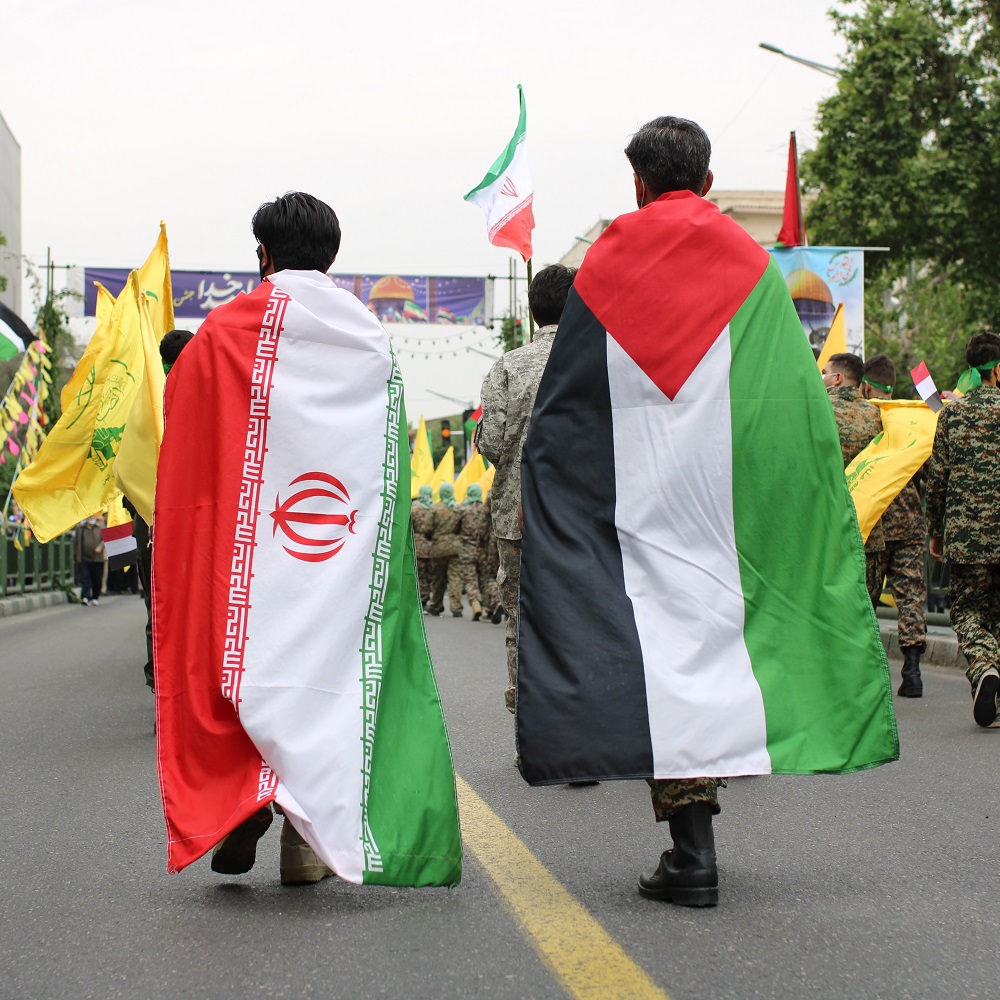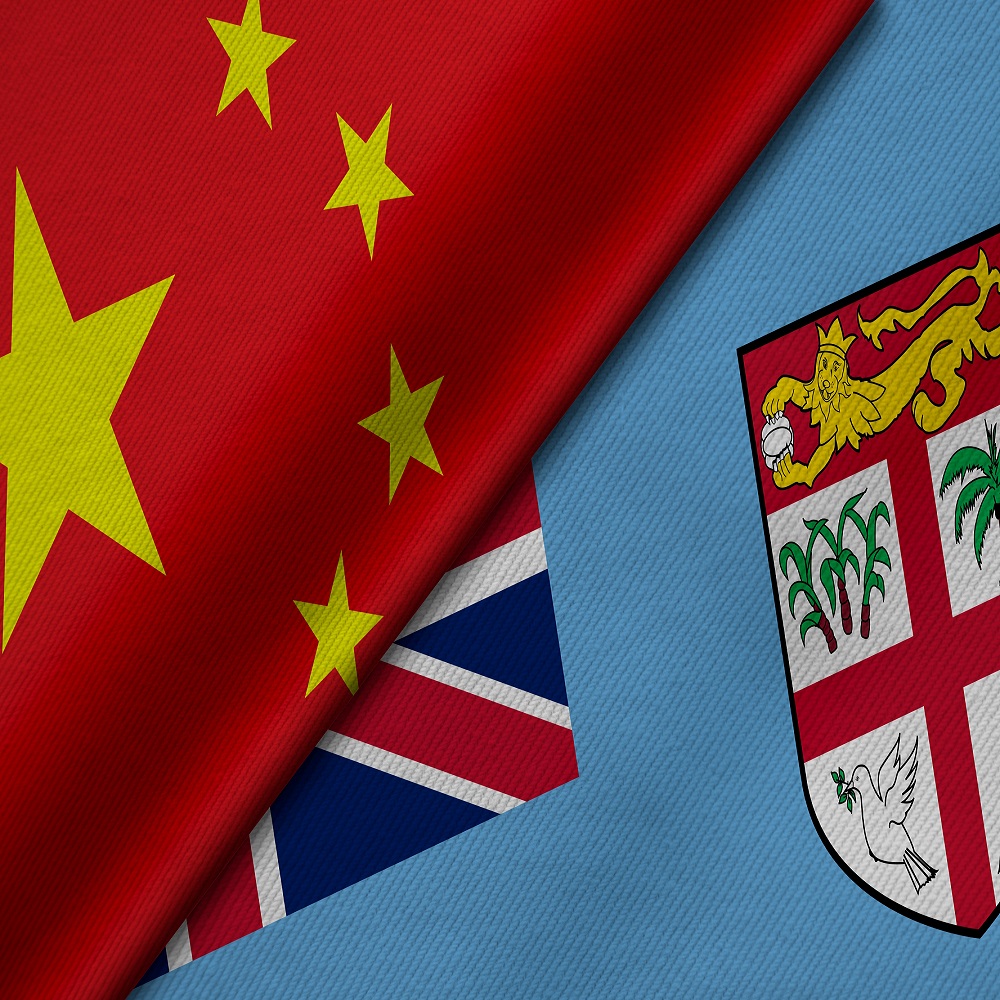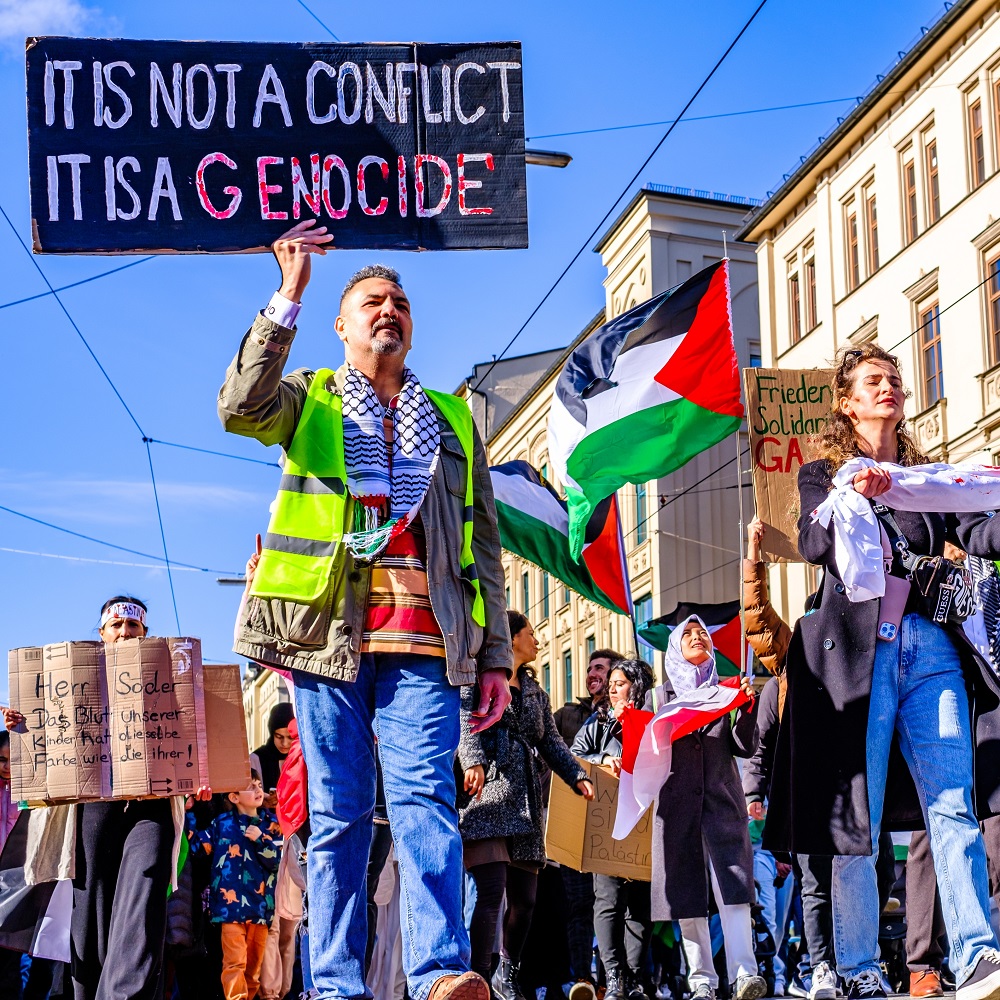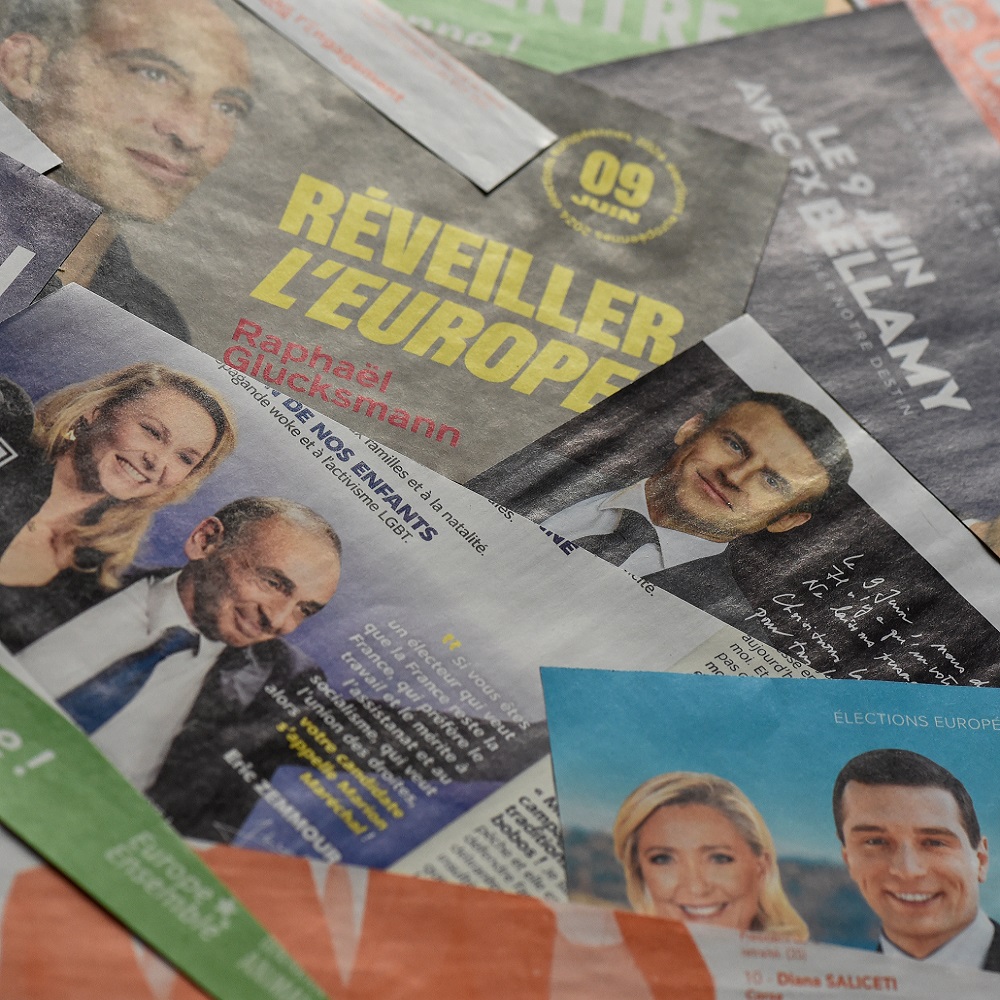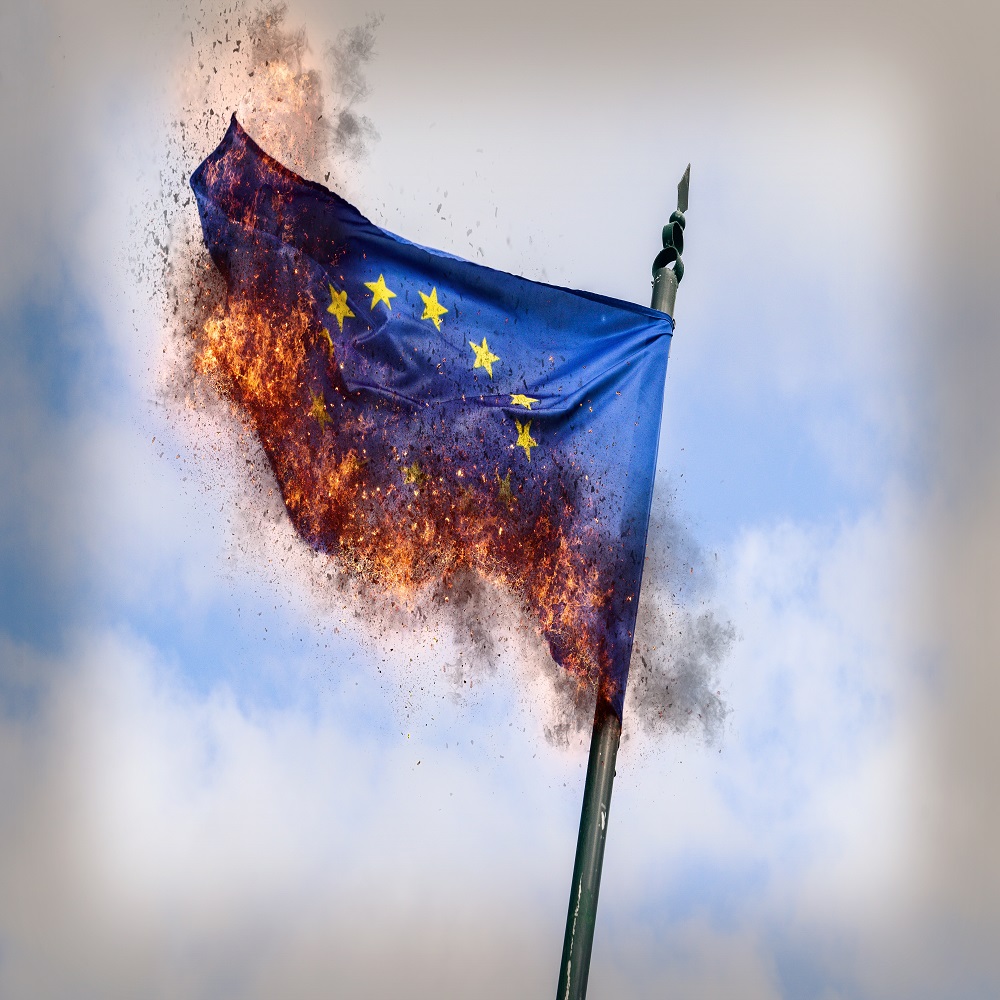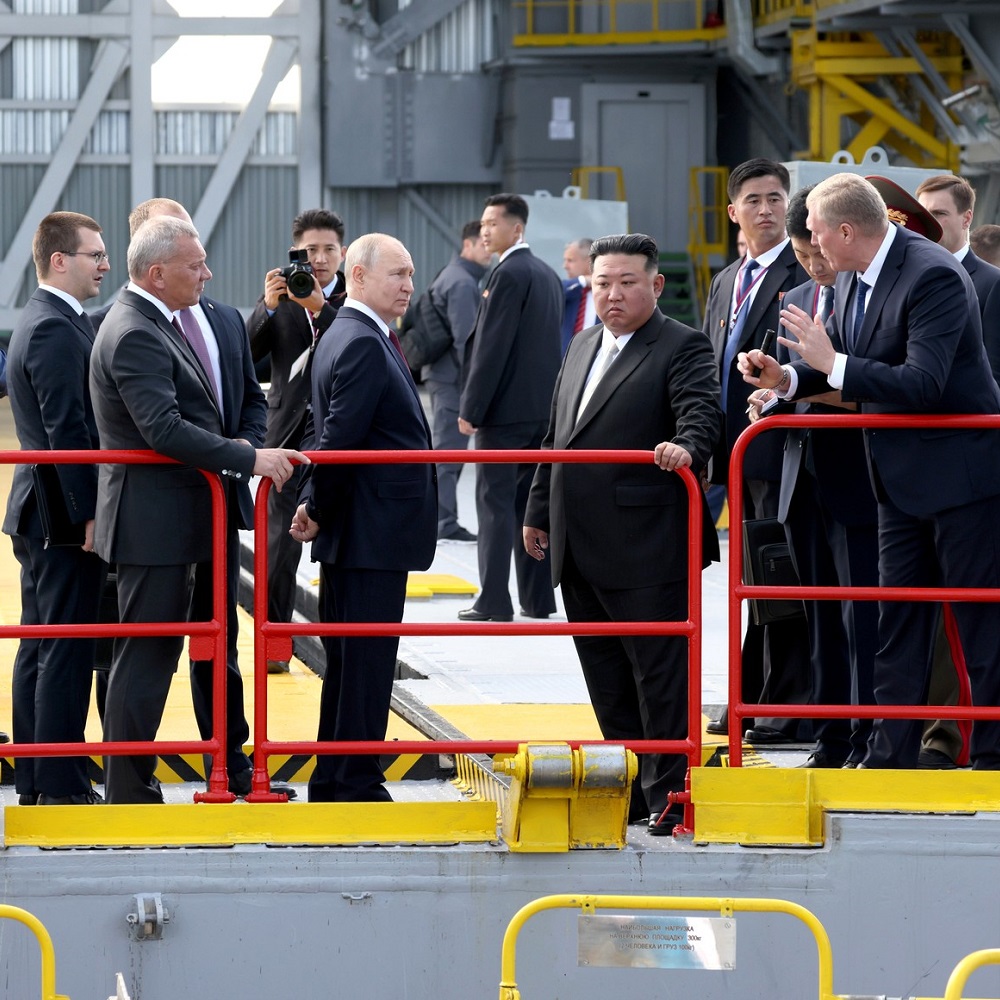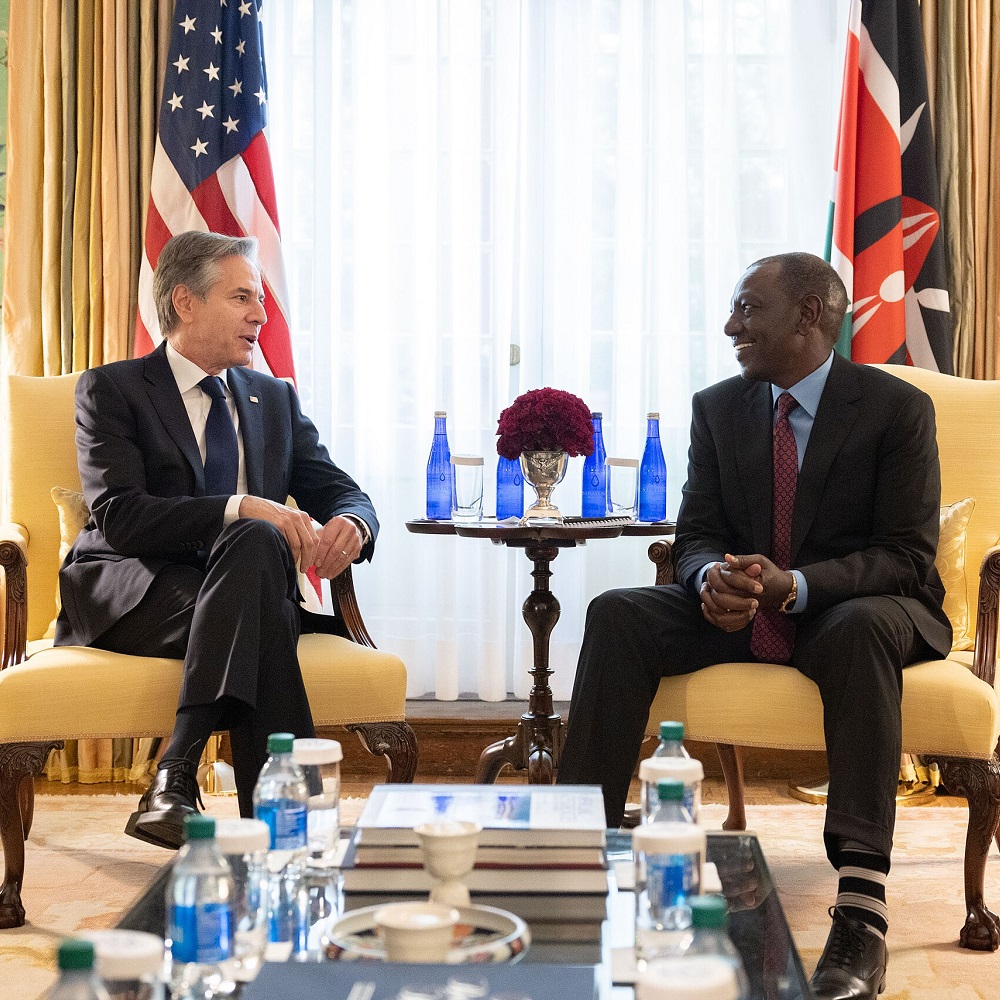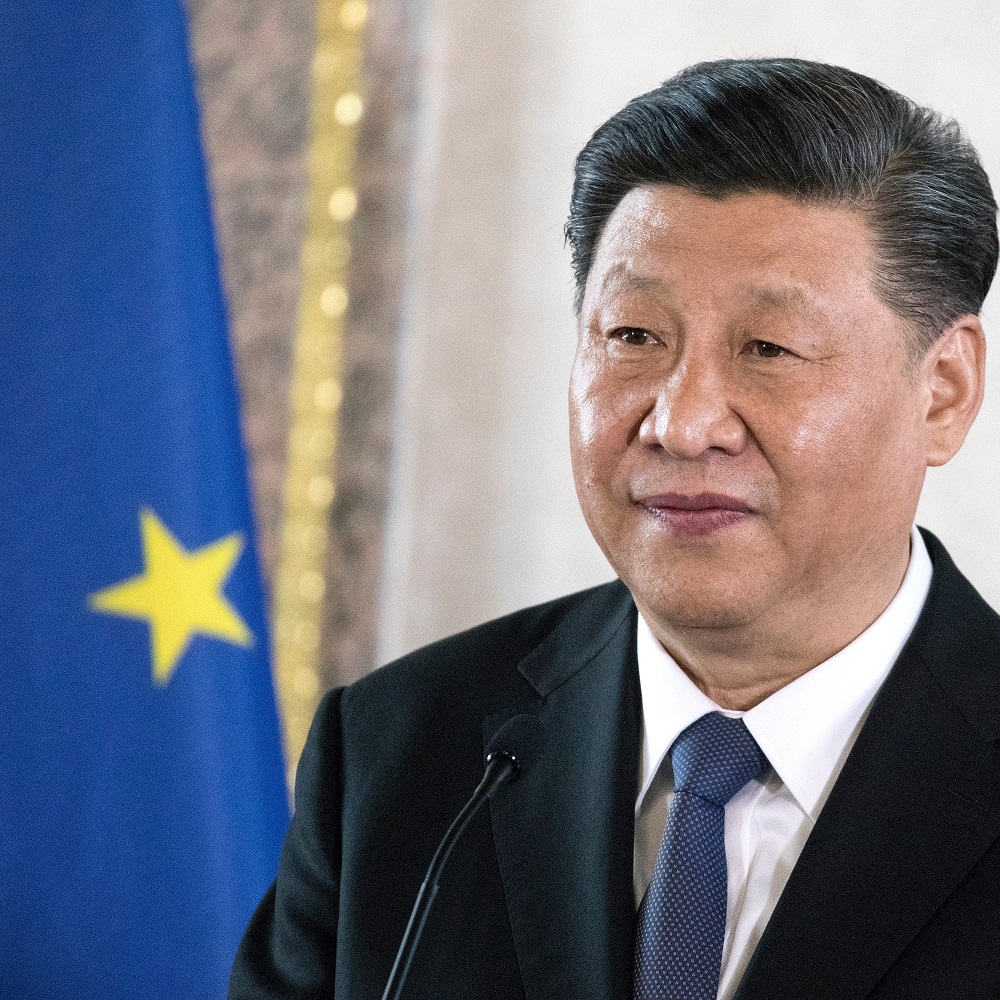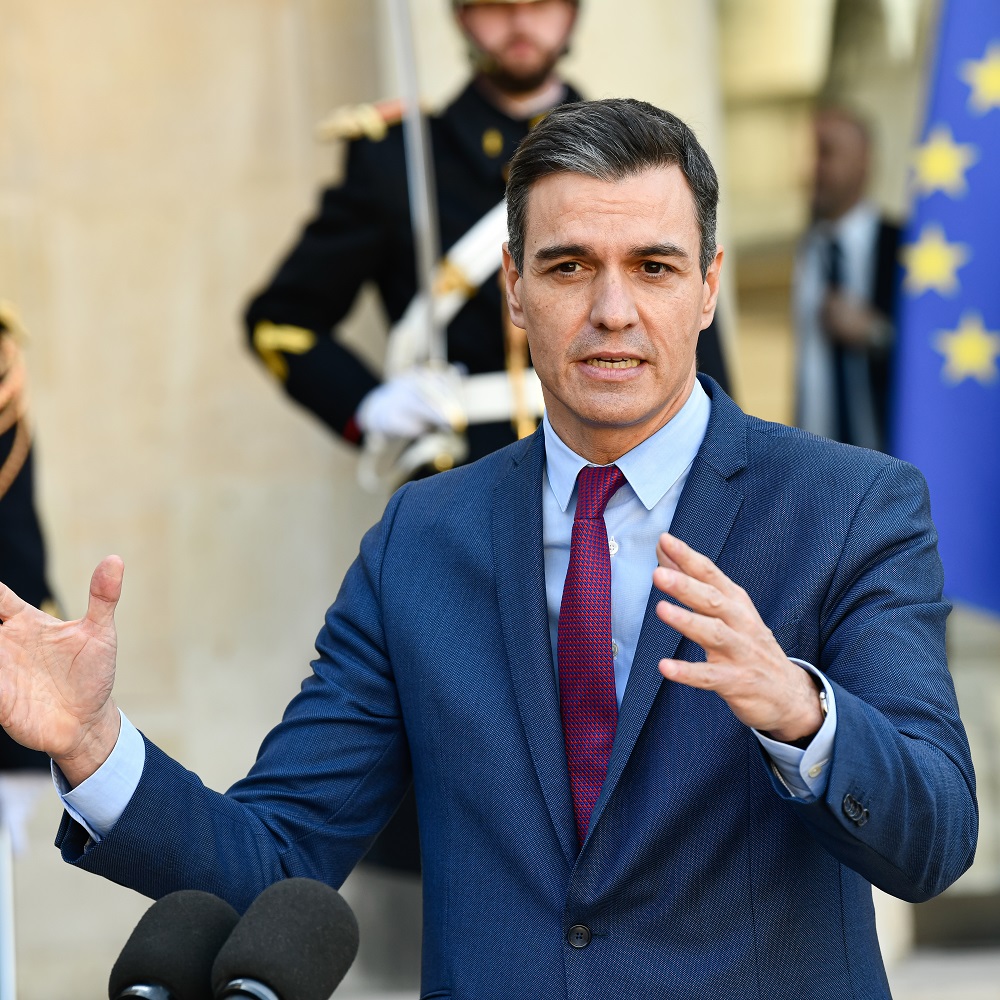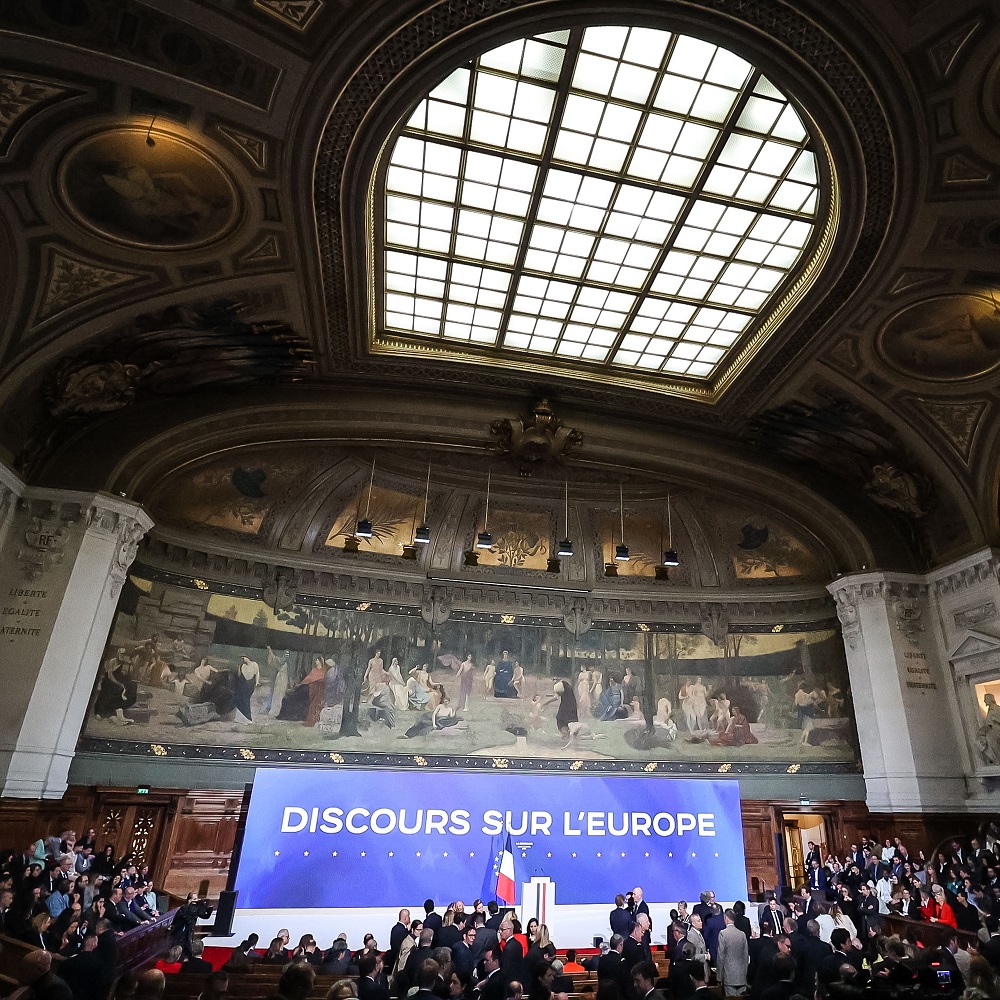Palestine beyond recognition
by Gonzalo Peña Ascacíbar
한국어로 읽기Leer en españolIn Deutsch lesen
Gap
اقرأ بالعربيةLire en françaisЧитать на русском
The announcement of Spain's recognition of the State of Palestine constitutes a significant step, but it is not accompanied by the adoption of other necessary measures for its effective consolidation.
Already, 147 fully-fledged member states of the United Nations recognize the State of Palestine. With Norway's, Ireland's, and Spain's decisions, along with Slovenia's recent accession, three-quarters of the UN's 193 member states now uphold this commitment.
Beyond the particular implications of this, it remains to be defined whether it will be accompanied by other necessary measures of broader scope to achieve full recognition and to act urgently for a permanent ceasefire, the end of Israeli occupation, and the massacre against the Palestinian people. According to the Ministry of Health, more than 37,000 people, including 12,000 children, have been killed in the Gaza Strip since the beginning of Israel's military offensive in early October last year.
Among these actions are the reconsideration of diplomatic and trade relations with Israel, an arms embargo, support for South Africa's lawsuit in the International Court of Justice for the genocide in Gaza, and the involvement of the international community to effectively ensure a process of peace, security, and guarantees in the territory.
The Dimension of Recognition
May 28th, 2024. This was the day when the Council of Ministers approved the official recognition of the State of Palestine by Spain. This date also marked the change in the designation of Husni Abdel Wahed, who had been the representative of the Palestinian National Authority in Spain since March 2022, to now serve as the ambassador of the State of Palestine to Spain.
"We are very grateful for a measure that holds significant political and legal importance in strengthening the bonds of brotherhood and friendship, where Spain is playing a crucial role in favor of a peaceful solution at a time when Israel is committing genocide with the support of the United States, Germany, and other countries," states Wahed, emphasizing the importance of opening a space of hope that recognizes the rights of the Palestinian people to live freely in their own state.
The 1967 borderlines upon which this recognition is based, as well as its effectiveness, have been debated in recent days. According to Wahed, "If it were merely symbolic, Israel would not react with such hysteria, because they know this goes beyond symbolism and has practical effects because, when more countries join in recognizing Palestine, it constitutes pressure not only on Israel as the occupying power but also on its supporters, who are complicit in the genocide." The recognition itself is not the goal for the ambassador but rather a step on the path that needs to be continued.
Ana Sánchez, member of the Solidarity Network Against the Occupation of Palestine, distinguishes in her assessment the dual nature of the measure as both a necessary but insufficient step, stating that "it does not meet the needs or guarantee the right to self-determination of the Palestinian people as a whole, nor will it have an impact on the daily lives of Palestinian individuals," for which she calls for more decisive measures against the apartheid and genocide being committed by Israel.
It was September 2009 when the then Prime Minister of Spain, José Luis Rodríguez Zapatero, called for Palestinian recognition as a key element for peace in the Middle East in a speech at the United Nations headquarters. This commitment did not materialize until fifteen years later, about which, in addition to other related issues in the report, this media outlet sought to inquire from the current Secretary of State for Foreign and Global Affairs, Diego Martínez Belío. The response from the ministry's communication team was a refusal to grant an interview citing scheduling reasons.
Regarding the delay in Palestinian recognition over time, Sánchez, from the RESCOP, recalls how governmental arguments pointed to the intention for recognition to be more coordinated with other EU member states, emphasizing the need to promote this process institutionally with the necessary conditions for effective implementation.
On the other hand, Olga Rodríguez, a journalist specializing in international affairs and the Middle East, agrees with Sánchez on the positive direction of the recognition step, but also highlights that it comes late and is insufficient. This promise to recognize the Palestinian state by Spain "has not materialized until now due to political reasons and because there was no price to pay for not doing so."
Rodríguez specifies in the historical and political context how not only did the trend of neglect towards Palestine continue, but also how the United States, first under Trump and then under Biden, pushed the Abraham Accords to formalize relations between several Arab countries and Israel as if the Palestinian issue did not exist. In fact, she recalls that when Hamas attacks occurred on October 7th, the United States had been promoting the signing of these agreements between Saudi Arabia and Israel for some time, following their signing by several Arab countries in recent years.
According to her, the fundamental key lies in the fact that today the territory designated for the Palestinian state is not available to the Palestinian population because it has been illegally occupied by Israel since 1967, thereby violating several United Nations resolutions. "In recent years, especially in the last two decades, this occupation has tripled, and settlements in the West Bank and East Jerusalem have expanded with the connivance and support of Europe and the United States, major powers dominating the region, which have maintained their preferential economic and trade alliances with Israel," she adds.
What additional measures can be taken?
The United Nations General Assembly's 1947 partition plan allocated 54% of the territory of historic Palestine to the Israeli state and the remaining 46% to the Palestinian state, despite the Palestinian population being numerically larger than the Jewish population at that time. The Zionist conception of a Jewish state was tied to a Jewish majority, leading to an ethnic cleansing known as the Nakba, which resulted in the expulsion of 750,000 Palestinian people from their homes.
Israel, through Plan Dalet, occupied new territories that were not allocated in that partition and used the wartime scenario to annex up to 78% of historic Palestine. Therefore, as Rodríguez mentions, when discussing the allocation of a future Palestinian state, we are only talking about 22% of historic Palestine, which is also filled with checkpoints, settlements, and under Israel's military dominance.
"The essential thing is to end the Israeli occupation. This issue often gets overlooked, even when discussing the recognition of the Palestinian State and the so-called two-state solution. Everything must be based on a starting point, which is the end of the Israeli occupation and the withdrawal of troops from all Palestinian territory in the Gaza Strip, West Bank, and East Jerusalem", proposes Wahed. The Ambassador of the State of Palestine to Spain emphasizes that without Israeli withdrawal and the end of the occupation, Israel's apartheid regime against the Palestinian people will continue. "The question is how long will the international community continue to be, in many cases, complicit in this?".
Francesca Albanese, Special Rapporteur on the human rights situation in the occupied Palestinian territory since 1967, recently published the report called "Anatomy of a Genocide," in which she concludes that Israel is committing the crime of genocide against the Palestinian population in Gaza by "causing serious bodily or mental harm to members of the group, deliberately inflicting on the group conditions of life calculated to bring about its physical destruction in whole or in part, and imposing measures intended to prevent births within the group." Both, she and 52 other UN experts and rapporteurs, have called for sanctions and arms embargoes on Israel following the shocking Israeli attack on the refugee camp in Rafah.
From the Solidarity Network Against the Occupation of Palestine, Sánchez believes that recognizing a State while maintaining relations with the State attempting to eliminate it is a double standard. "It is very hypocritical to say that dignity and hope are recognized shortly after the heartbreaking images from Rafah, and that alongside this recognition, there is no arms embargo on Israel, no severing of diplomatic, economic, commercial, military, academic, and sports relations with those perpetrating such crimes. I do not find this policy very coherent."
Despite the Minister of Foreign Affairs, European Union, and Cooperation, José Manuel Albares, stated that arms exports to Israel had been suspended since October 7th, military equipment worth over one million euros was exported from Spain to Israel in November and December 2023, according to a research conducted by the Centre Delàs.
Sánchez reaffirms the above by arguing that Spain has not stopped buying or selling weapons to Israel, nor has it stopped allowing Spanish territory to be used as a transit space for weapons destined for the Zionist state. She demands more information and transparency regarding the role of the Rota base in recent months. "The demand for a military embargo is a historical request to the international community. This is not just about the current genocide in Gaza, but if Israel is capable of perpetrating this televised genocide, it's because they have been armed for decades," she explains.
Rodríguez also agrees that without real pressure on Israel through political and economic measures at the level of nation-states, the European Union, and the United Nations, "nothing will change, as demonstrated by Israeli history in recent decades." Therefore, she contrasts the immediate mechanisms applied to Russia, while, except for some countries, there has been no suspension or rupture of diplomatic relations with Israel, protected by the United States and Europe.
Furthermore, she highlights how these sanctions and arms embargoes have been requested for years because this did not start on October 7th, as Israel "has been violating international law, illegally occupying, implementing an apartheid system, torturing, killing, and discriminating for a long time." Therefore, she regrets that all this has continued to happen, even becoming more sophisticated, because nothing has been done due to geopolitical reasons, being in Europe and under its umbrella and within the American orbit, with all that this implies. "This is the impunity and the policy of Israeli fait accompli."
Rodríguez believes there is a significant risk of collapse of the "fragile scaffolding" built upon the United Nations Charter and international law, as she considers that in recent months all red lines have been crossed with insults and breaches by Israel, but also with very concerning and serious challenges from the United States. She opines that the severity lies in transitioning to the law of the jungle, the law of the strongest, "at a time of devouring capitalism and resource depletion, where major powers will compete for the domination of wealth, with victory going to those who arrive first through war."
Currently, there are two international courts investigating Israel. On one hand, there is the International Criminal Court's request for arrest warrants against Prime Minister Benjamin Netanyahu and Defense Minister Yoav Gallant. Meanwhile, on the other hand, there is the genocide complaint regarding Gaza that South Africa filed against Israel in the International Court of Justice, the most prominent judicial body of the United Nations. Regarding the latter, Spain has joined the proceedings but has not taken a position to support the lawsuit.
In response, Sánchez sees the accountability processes in international courts as a positive development, but she adds that it is more of a political and diplomatic message rather than something that will have practical application with consequences on the ground. Therefore, the next consistent and coherent step should be the implementation of other measures such as an arms embargo against Israel.
Finally, Rodríguez believes that the way Minister Albares presented the initiative has watered it down because he has insisted that they will not take sides. "We will have to see the statement of intervention in the procedure when they send the request, but he has made it clear that they do not support South Africa's complaint and that they will limit themselves to supporting the provisional measures issued by the Court for compliance by Israel." Therefore, she emphasizes that this will not have effective capacity unless it is accompanied by political actions that push to achieve that goal.
Camping and Academicide
In the realm of demanding actions to be carried out, the academic sphere is also involved. The University Network for Palestine, which is present in over forty public universities in Spain, advocates several demands to university leadership teams, the Conference of Rectors of Spanish Universities, and the Ministry of Science, Innovation, and Universities. Specifically, these five points: condemning the destruction of universities in Palestine, demand for an immediate ceasefire allowing necessary humanitarian interventions, severance of diplomatic relations with Israel, non-collaboration with companies involved in genocide, and allocation of economic resources for hosting students and academic staff in Palestine and for the reconstruction of universities in Gaza.
In the face of Israel's daily normalization of genocide against the Palestinian people, student encampments at universities highlighted the unacceptability of these actions and the need to defend human rights. The effect of these encampments expanded like what happened in 2011 in the city squares during the 15M movement. Within the network's common framework, each encampment operates autonomously. Specifically, the encampment in Madrid was formed through a coalition of university groups that had previously worked on Palestine-related issues. From there, the encampment was convened, attracting people beyond its original coalition.
Oriol Erausquin, a Sociology Ph.D. student at the Spanish National Research Council (CSIC) and the Complutense University of Madrid (UCM), who participated in the Palestine camp at the UCM, believes that the recognition, which has been promised on several occasions and could exert some pressure on Israel, "may seek to enhance the international projection of the Pedro Sánchez government, but the reality is that there is a genocide happening". Therefore, he asserts that it is essential to act with sanctions and an embargo on commercial activities with Israel, because "anything short of direct action on what is happening seems very limited, inadequate, and belated to us."
The encampment in Madrid has directed its proposals to the public universities in Madrid. “We want to sit down with them and achieve agreements in a unified manner”, emphasizing the difficulty of this due to the refusal to negotiate by the Rectorate. “The pressure we are exerting, with some universities yielding to the demands and the international situation unfolding, may lead to the need to break a series of agreements that are whitewashing and legitimizing the Israeli regime, in addition to actively participating in its industry and war machinery”, Erausquin points out. So far, the universities in Madrid have not responded, while the universities of Barcelona, Seville, Jaén, Granada, Valencia, Salamanca, Cádiz, and Pablo de Olavide have fully embraced the points raised by the network and have suspended relations with Israeli institutions.
In conjunction with the student block, the faculty has also mobilized. The Network of Teachers and Workers of Universities in the Community of Madrid for Palestine emerges within a broader national network that includes 44 universities across the country. Within this network, initiatives from faculty members of public universities in Madrid have arisen to unite and carry out more specific actions within the community since March of this year. These initiatives include organizing activities such as outdoor classes, roundtable discussions, and conferences that have enabled them to consolidate as a collective.
One of their fundamental contributions is the quantification and visibility of what the term "academicide" entails. Through this, they seek to highlight the framework of the killings of over 230 teachers and 5,000 students in Palestine. Joan Pedro Carañana, a member of this network, explains that academicide consists of the systematic extermination of education and research: "It is scandalous that Israel has bombed all universities in Gaza, that it has killed thousands of people in the educational and scientific fields, and that more than 90,000 students cannot attend university." Academicide is therefore "a key vector of genocide that not only seeks to kill people associated with thought, but also to deprive an entire people of their right to knowledge, speech, and memory," he points out.
Due to the difficulty in finding the people killed under the rubble, the number of victims will be higher than previously counted. The network considers various sources for this, such as the United Nations or Scholars Against the World in Palestine, among others. Additionally, according to the Palestinian Journalists Syndicate, at least 140 journalists have been killed since October 7th, 2023. Before that date, Carañana details how in January of the previous year, there were 902 crimes, violations, and punishments by Israeli occupation forces committed during 2022. "This is obviously about silencing the victim so they can't even protest and raise their voice to convey their point of view. It's part of the dehumanization that accompanies genocide," he concludes.
The right to self-determination of the Palestinian people
Netanyahu displayed a map at the United Nations Assembly two weeks before Hamas' attacks, showing Gaza, the West Bank, East Jerusalem, and the Golan Heights as part of Israel. In other words, he desires that territory, without Palestinians, as Rodríguez points out. Given the complexity of the so-called two-state solution, she recalls that some advocate for a more just and egalitarian idea of a single state with equality, rather than a state where rights are only for one ethnicity or religion. In fact, many Palestinian people who were expelled in 1948 and 1967 have the right, for whom the United Nations recognizes their right of return through a resolution to return to the homes they were born in, which were taken from them through the Absentees' Property Law.
For Wahed, the self-determination of the Palestinian people is always present and is something they will not relinquish. "I want to remind you that this so-called two-state solution is not a Palestinian demand. It is a Western plan, initiated by George Bush, which was embraced as the solution by the international community. We have adopted it, but our original demand from Palestine is a democratic and secular state for all citizens." He adds that Palestinian people today live in a state where Israel occupies nearly 100% of historic Palestine, but with two systems: one of democracy for Jews and another of apartheid for Palestinians.
That's why he argues that the issue goes beyond the Palestinian people and that it is necessary to invest in a culture of peace. He points out, for example, that in recent years, most of NATO countries have approved increasing military spending to at least 2% of GDP. The Palestinian ambassador to Spain suggests that part of this GDP should instead be allocated to promoting a culture of peace, as this is the solution to combating war with peace, poverty with investment in the future, or hunger by dedicating resources to combating climate change and land desertification. "This is the solution not only for Palestine but for all humanity."
On the other hand, Carañana believes it would be worthwhile to pay attention to what the people of Palestine are saying, where they welcomed this recognition as a step forward but with the need to delve deeper and implement measures beyond this. The path, he estimates, involves discussing the borders of the recognized State and how the construction of that State will be made effective in a context of occupation by the Israeli army, in order to then, intensify pressure on Israel so that it is forced to agree to a ceasefire and promote a peace process.
Recently, the Camp for Palestine in Madrid has decided to dismantle and leave the esplanade of the Complutense University where they were, but not before planting an olive tree for peace. They do this firmly believing that the struggle for human rights continues in other spaces, where, as Erausquin explains, they will have to mobilize all the strength that has been gathered to continue fighting for the Palestinian cause.
Meanwhile, in the RESCOP, they emphasize the complexity of whether a Palestinian state with sovereignty can exist in the current situation. "The policy of fait accompli that Israel is developing in the occupied West Bank seriously questions whether this is indeed a process that has the minimum guarantees to succeed," declares Sánchez, highlighting that the present and future must be approached from a decolonial perspective in response to the colonial regime policies being carried out by Israel.
To guarantee the right to self-determination of the Palestinian people, Sánchez believes that there must first be a process of accountability for those who have systematically violated the rights of the Palestinian people as a whole. "If we want negotiations to take place, the parties must be on equal footing because right now it's like placing someone who has been suffering abuses for decades against someone who is perpetrating them."
Thus, he explains that there should be two processes: on one hand, Israel must face international courts to be judged for war crimes, apartheid, and genocide committed against the Palestinian population; on the other hand, the Palestinian population should be asked how they want to manage this process of self-determination, to avoid imposing a colonial framework that prevents people who have to decide their own destiny.
Finally, Rodríguez reminds us that the self-determination of the Palestinian people is a right that has been overwhelmingly ratified through a resolution of the United Nations General Assembly. However, as she counters, the problem lies in the fact that the Israeli Parliament also recently voted overwhelmingly against the right to self-determination of the Palestinian people. This is a chamber where there are barely any parliamentary representatives advocating for peace and an end to Israel's violations of international law.
"We must build everything to promote a culture of peace," emphasizes Rodríguez. This would encompass educational programs from childhood that are reinforced in high schools and universities, incorporating elements that emphasize peace culture and human rights. It also involves replacing in the media the promotion of war culture, which often receives awards, with peace culture. Additionally, she advocates for a modification of the voting and veto systems in the United Nations to achieve fairer mechanisms of mutual respect among states, replacing imposition with multilateralism. In essence, it is a long-term task for defending the Palestinian population and human rights that must be activated across multiple fields such as politics, social issues, media, and law.
The article was translated and licensed under CC BY-SA 3.0 ES (Atribución-CompartirIgual 3.0 España).
